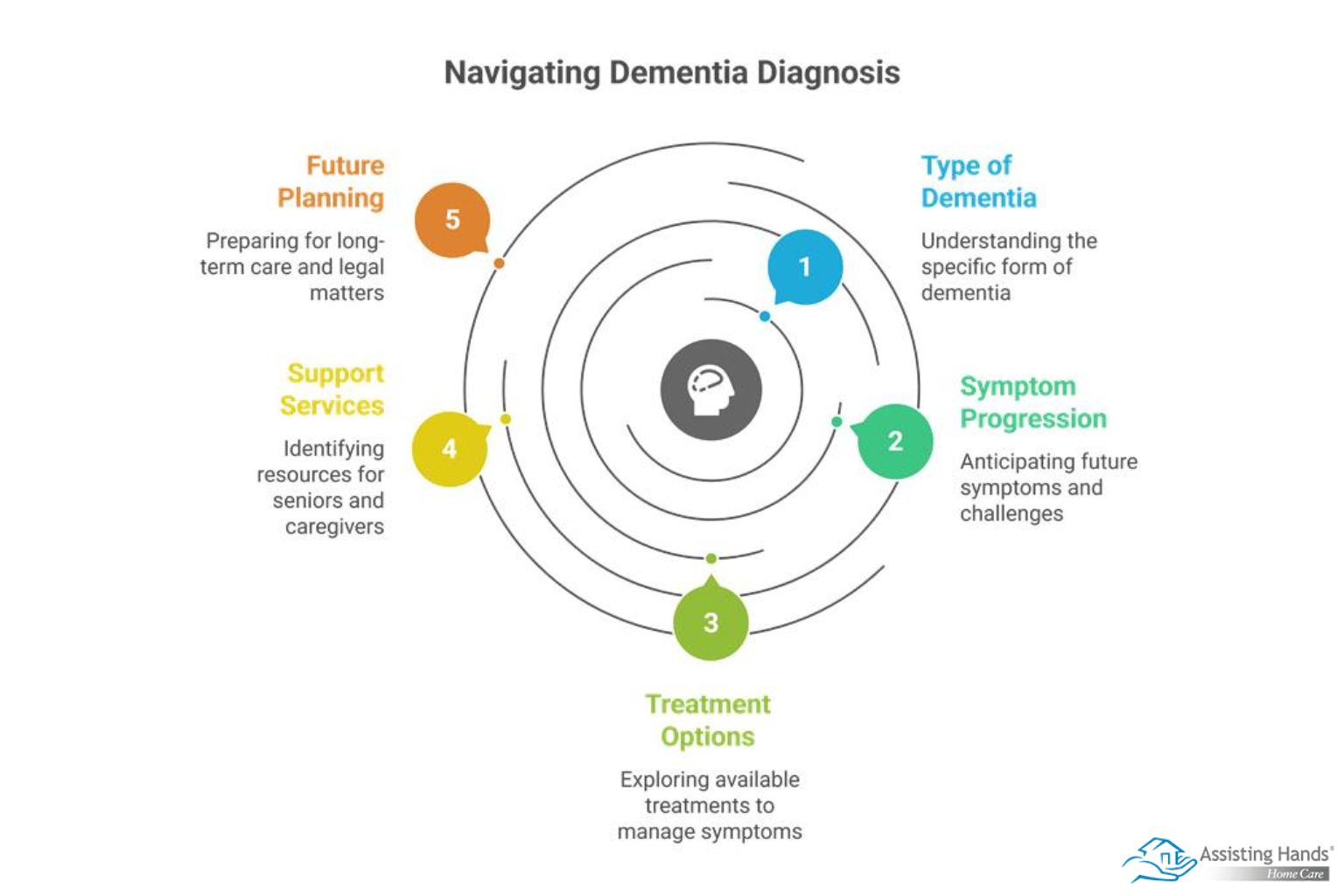
Table of Content
Receiving a diagnosis of dementia can be overwhelming, bringing with it a wave of emotions and concerns. One of the most important steps in navigating this new reality is understanding the diagnosis fully. Asking the right questions can help you or your senior loved one take control and plan for the future effectively.
What Type of Dementia Do I Have?
Dementia comes in various forms, each with unique characteristics, symptoms, and progression patterns. Understanding the type of dementia you’ve been diagnosed with is a critical first step. Common types include Alzheimer’s disease, vascular dementia, Lewy body dementia, and frontotemporal dementia. Ask your healthcare provider to explain what distinguishes your specific diagnosis and how it may impact you over time. Knowing the type of dementia can also influence treatment plans and care strategies.
What Symptoms Should I Expect as the Condition Progresses?
Learning about the symptoms associated with your diagnosis can help you prepare for the future. Ask about how the condition is likely to progress and which symptoms you might experience at various stages. Will memory loss worsen over time? Are there potential challenges with language, judgment, or physical coordination? Understanding what lies ahead can also help caregivers anticipate and meet your needs effectively.
Dementia can be challenging for seniors to manage, but they can maintain a higher quality of life with the help of professional caregivers. If you or your senior loved one has been diagnosed with a serious condition and needs help with tasks like meal prep, transportation, bathing, and grooming, reach out to Assisting Hands Home Care, a leading provider of at-home care families can trust. We also offer comprehensive care for seniors with dementia, Alzheimer’s, and Parkinson’s.

What Treatment Options Are Available?
While there’s no cure for dementia, there are treatment options that can help you manage the symptoms and boost your quality of life. Ask your doctor about medications, therapies, or lifestyle adjustments that may slow the progression of symptoms or alleviate specific challenges. Additionally, inquire about new or experimental treatments that may be in development. Understanding your options allows you to make informed decisions about your care and explore opportunities that suit your specific condition.
What Support Services Are Available to Me and My Family?
Living with dementia often requires a network of support. Ask your healthcare provider about local organizations, support groups, and resources available for both seniors and caregivers. Community programs, counseling, and memory clinics can provide assistance, guidance, and a sense of connection. You should also find out whether there are workshops or caregiver training sessions your family can attend to better support you during this time.
Aging in place can present a few challenges for seniors living with dementia. However, they can still live independently at home with the help of professional dementia care. Annapolis families can rely on Assisting Hands Home Care to provide their elderly loved ones with mental and social stimulation, timely medication reminders, assistance with meal prep, and much more. Our caregivers are available around the clock to help you or your loved one live a happier and healthier life.
How Can I Plan for the Future?
A dementia diagnosis naturally leads to concerns about the future. It’s vital to work with your doctor and legal professionals to plan for what lies ahead. Ask about putting advance directives in place to outline your wishes regarding medical care, finances, and long-term living arrangements. Initiating these conversations early can provide peace of mind and ensure your preferences are honored if your ability to communicate them changes over time.
Seniors can face a variety of age-related challenges. Though some families choose to take on the caregiving duties, there may come a time when they need a trusted Annapolis in-home care provider. Families sometimes need respite from their duties so they can focus on their other responsibilities, and some seniors need around-the-clock assistance that their families are not able to provide. Assisting Hands Home Care is here to help. To create a customized home care plan for yourself or your loved one, call us today.
